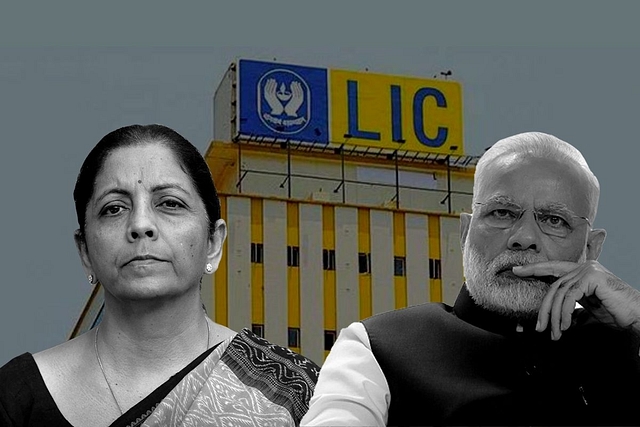
To Reap Big On LIC Share Sale, Govt Has To Stop Using It To Bail Out Failed Public Sector IPOs
LIC cannot be used as the dumping ground for public sector shares that the market will not otherwise touch.
The best way, of course, is a pact that guarantees LIC’s independence on where it will invest its policyholders’ funds.
The big budget announcement, that the government will disinvest up to 10 per cent in the Life Insurance Corporation (LIC), is a double-edged sword.
On the one hand, if handled well, it will allow the government to reap a huge revenue bonanza from a sale of up to 10 per cent of India’s largest life insurance company with an overwhelming market share of 72 per cent.
On the other, the sheer valuation may make it difficult to sell such a large stake to retail investors or even mutual funds, not to speak of sovereign wealth funds from abroad, unless the latter are guaranteed that LIC’s near-monopoly profits are not frittered away in bailing out the government’s own flop IPOs.
LIC cannot be used as the dumping ground for public sector shares that the market will not otherwise touch.
With a 72 per cent market share, LIC should ideally fetch a valuation of around Rs 6-8 lakh crore, if not more, which means a 10 per cent stake sale will fetch at least Rs 60,000-80,000 crore. HDFC Life, with less than a 10 per cent market share, is currently valued at Rs 1.14 lakh crore. Since the government additionally uses the LIC to implement its own social schemes for a fee, LIC’s valuations can be higher than what market shares alone would indicate.
A Rs 60,000-80,000 crore stake sale in LIC cannot be easily sold in smaller chunks to retail investors or mutual funds unless large foreign players are also asked to bid.
And the first thing they will demand is that LIC should have clean books, and freedom from government interference in its investment decisions.
While it is always possible that LIC will get investors at lower valuations, the government should actually maximise its share sale revenues by making it clear that LIC’s bailouts on behalf of government will either be capped or eliminated altogether in stages.
This implies a transparent agreement between LIC and the government, where the former makes its own investment decisions based on commercial judgments.
The other way to do it is retain the current role of LIC as a bailout expert, but with the government giving a guarantee that if the insurer suffers a long-term loss on the shares it is asked to pick up, the government will buy them back at the original price.
The best way, of course, is a pact that guarantees LIC’s independence on where it will invest its policyholders’ funds.